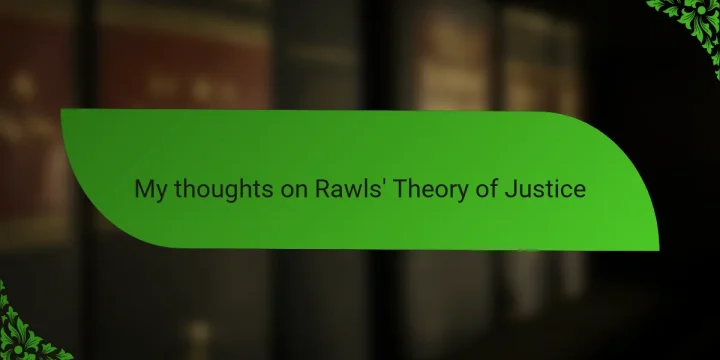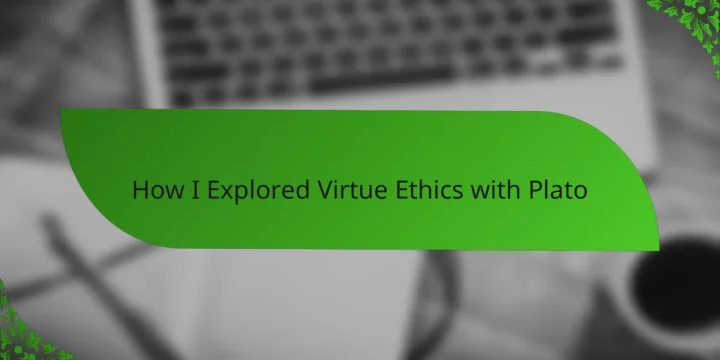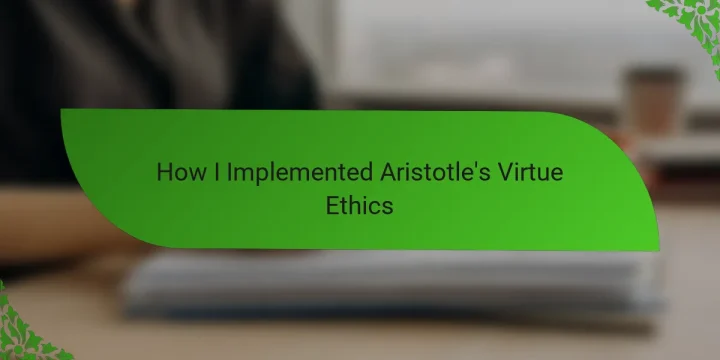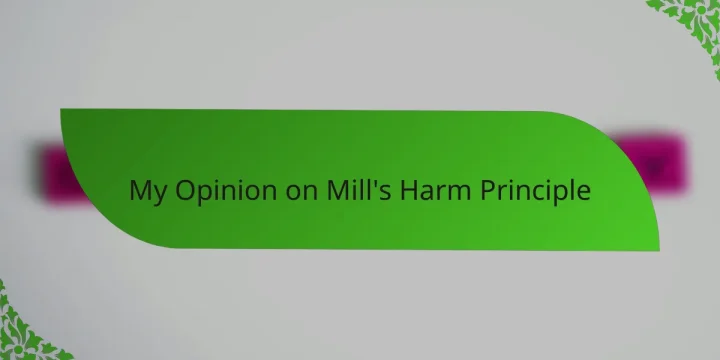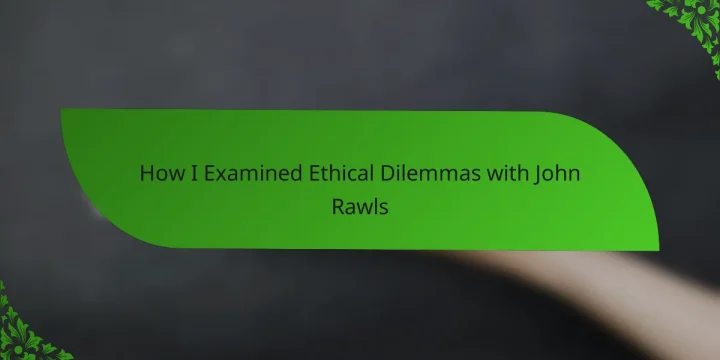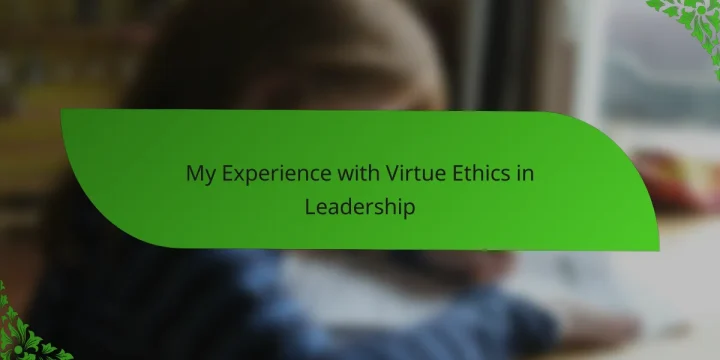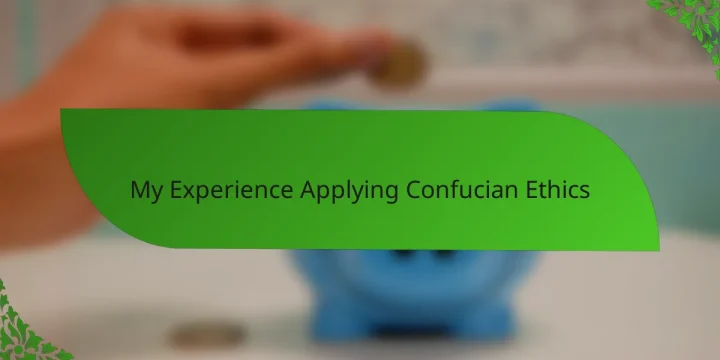
Key takeaways Confucian ethics emphasizes self-cultivation, guiding individuals to reflect on their actions and align them with their values. Education, informed by Confucian principles, is about nurturing character and fostering a collaborative community rather than just acquiring knowledge. Practicing virtues like benevolence and righteousness enhances relationships and encourages meaningful interactions in daily life. Applying Confucian ethics involves navigating modern complexities while remaining committed to lifelong personal growth and ethical behavior. Understanding Confucian Ethics Principles When I first encountered Confucian ethics, I was struck by its emphasis on virtues like benevolence (ren), righteousness (yi), and propriety (li). These aren’t just abstract ideas; they felt deeply practical, guiding how I interact with others daily. Have you ever noticed how small acts of kindness can ripple through a community? That’s exactly what ren…
